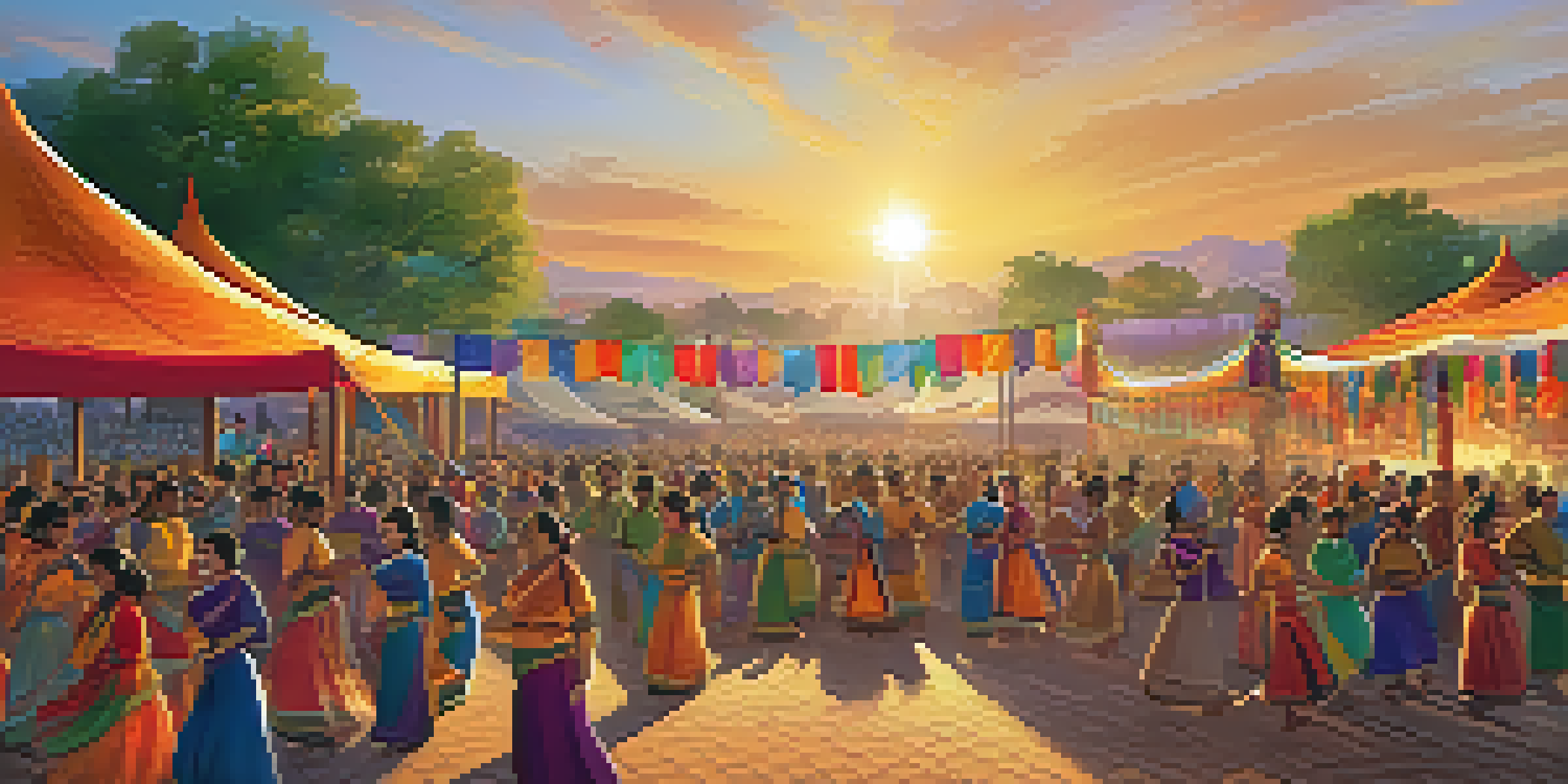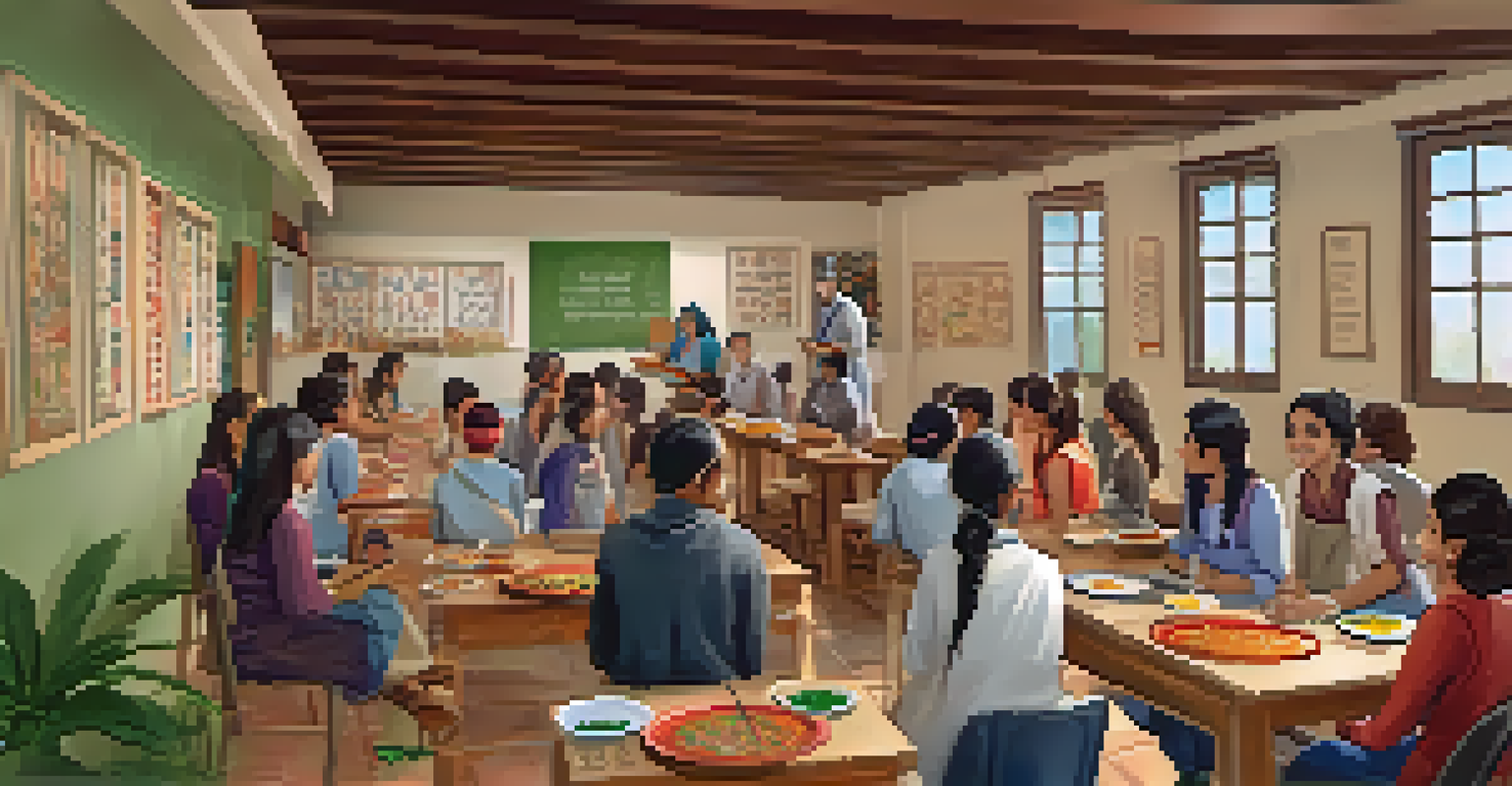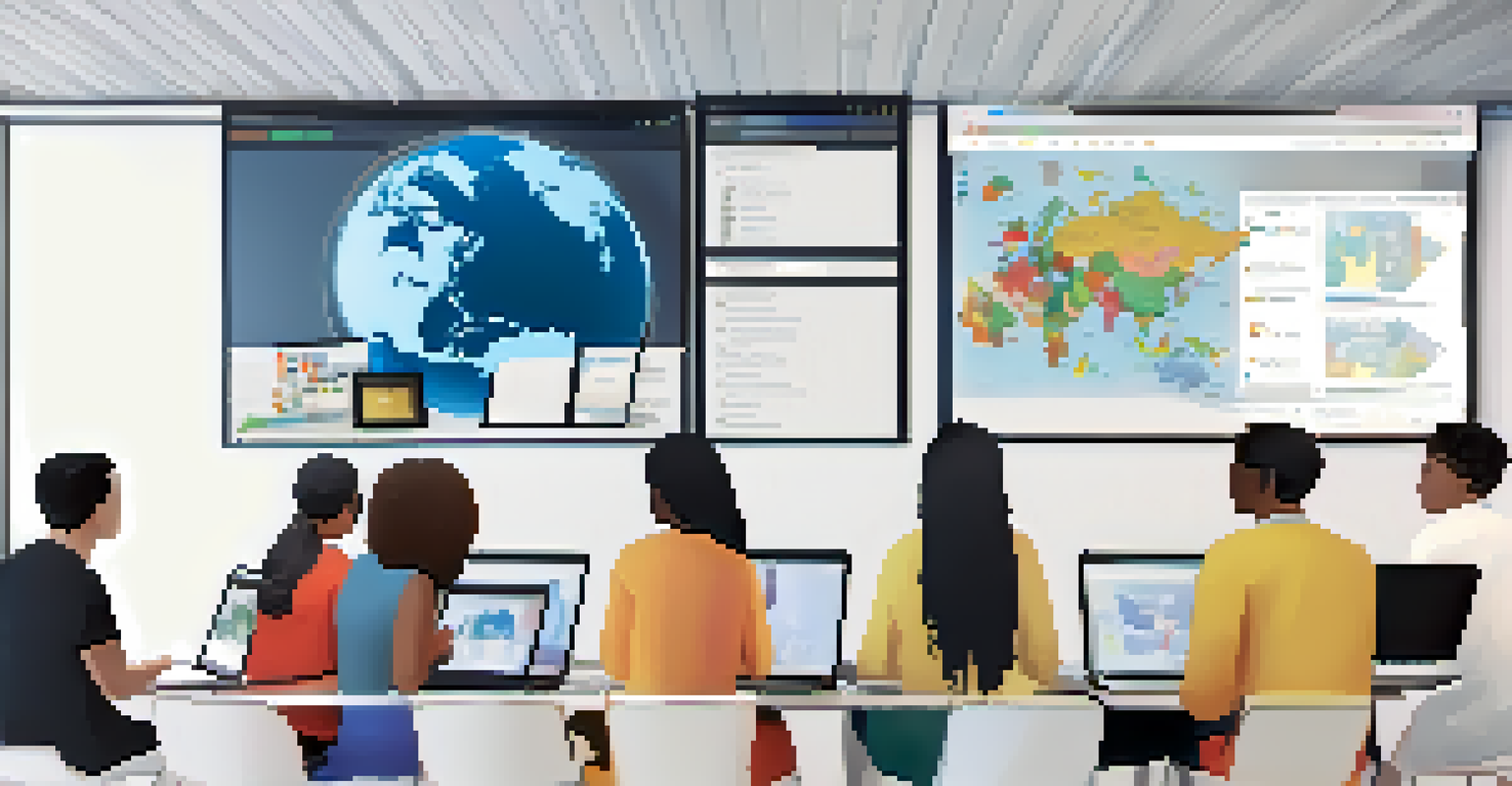Top Cultural Learning Programs Between India and the World

Understanding Cultural Learning Programs Around the World
Cultural learning programs are initiatives designed to promote understanding and appreciation of diverse cultures. These programs often involve exchanges, workshops, or collaborative projects that allow participants to immerse themselves in another culture. By bridging cultural gaps, these programs not only foster personal growth but also enhance global citizenship.
Culture is the widening of the mind and of the spirit.
In today's interconnected world, cultural learning programs play a vital role in shaping perspectives and building relationships. They provide a platform for individuals to share their heritage, experiences, and traditions, leading to enriched learning experiences. These exchanges can take place through various mediums, including education, art, and community service.
For example, a student exchange program might allow Indian students to study in a foreign country while hosting international students in India. Such initiatives help participants gain firsthand experience of different cultures, ultimately leading to greater empathy and understanding.
The Role of UNESCO in Promoting Cultural Learning
UNESCO, the United Nations Educational, Scientific and Cultural Organization, plays a pivotal role in promoting cultural learning worldwide. It recognizes the importance of cultural diversity and supports programs that encourage intercultural dialogue and understanding. By fostering collaboration among member states, UNESCO helps create a global community more aware of cultural differences.

One of the key initiatives is the UNESCO Creative Cities Network, which encourages cities to cooperate in various fields, including art and culture. Cities like Jaipur, India, have been recognized for their rich cultural heritage and are now part of a global network that promotes sustainable urban development through culture.
Cultural Programs Foster Understanding
Cultural learning initiatives promote appreciation and empathy by allowing participants to immerse themselves in diverse cultures.
Through these programs, UNESCO not only highlights local cultures but also encourages the exchange of ideas and best practices. This ultimately helps to preserve cultural identities while fostering mutual respect among different communities.
Exchange Programs: Building Bridges Between India and the World
Exchange programs are one of the most effective ways to facilitate cultural learning. These initiatives allow students, professionals, and artists to experience life in another country while sharing their own culture. For instance, the India-U.S. Exchange Program invites students to engage in academic and cultural experiences that deepen understanding between the two nations.
The art of communication is the language of leadership.
Participants in such programs often return home with new perspectives and skills that enrich their communities. This exchange of ideas can lead to collaborations in various fields, including business, technology, and the arts, ultimately contributing to global innovation.
Moreover, exchange programs often emphasize the importance of cultural competencies, equipping participants with the skills to navigate diverse environments. This is crucial in today’s globalized world, where cross-cultural communication is essential for success.
Art and Cultural Festivals: Showcasing Global Heritage
Art and cultural festivals are vibrant platforms for promoting cultural learning and exchange. Events like the Jaipur Literature Festival and the International Film Festival of India attract global audiences, showcasing the rich tapestry of Indian culture while inviting international artists and thinkers. These festivals create spaces for dialogue and collaboration, enhancing cultural understanding.
Through performances, discussions, and exhibitions, participants can immerse themselves in the cultural expressions of others while sharing their own. Such interactions not only celebrate diversity but also foster creativity and innovation.
UNESCO's Role in Cultural Exchange
UNESCO supports global cultural learning through programs that encourage dialogue and collaboration among diverse communities.
Additionally, these festivals often include workshops and seminars that provide participants with hands-on experiences. This not only deepens their understanding of different cultures but also encourages them to reflect on their own cultural identities.
Language Learning Initiatives Enhancing Cultural Exchange
Language is a powerful tool for cultural exchange, and initiatives aimed at language learning play a significant role in fostering understanding. Programs like the Hindi Language Program in various countries aim to teach Indian languages while promoting cultural heritage. Learning a language opens doors to deeper connections with people from different backgrounds.
These language programs often include cultural immersion components, such as cooking classes, dance workshops, and traditional festivals. Participants not only learn the language but also experience the culture firsthand, creating a richer learning environment.
Furthermore, language exchange platforms, both online and offline, allow individuals from different countries to connect and learn from one another. This mutual teaching and learning foster friendships that transcend cultural boundaries.
Cultural Learning Through Digital Platforms and Technology
In the modern era, digital platforms have revolutionized the way cultural learning occurs. Online courses, webinars, and virtual exchanges provide individuals with opportunities to explore different cultures from the comfort of their homes. This accessibility has made cultural learning more inclusive and widespread.
For instance, platforms like Coursera and edX offer courses on Indian art, history, and philosophy, attracting learners from around the globe. These courses allow participants to engage with experts and peers, facilitating meaningful discussions and connections.
Digital Platforms Enhance Cultural Learning
Modern technology and online resources have made cultural learning more accessible, allowing individuals to explore diverse traditions from home.
Moreover, social media platforms enable cultural sharing through storytelling, art, and music. Individuals can connect with artists and cultural ambassadors worldwide, enriching their understanding of diverse traditions and practices.
Community Programs: Local Initiatives with Global Impact
Community-based cultural learning programs play an essential role in fostering local and global connections. Initiatives that involve local artisans, musicians, and educators help preserve cultural heritage while promoting intercultural dialogue. Programs like the Rural Craft Hubs in India empower local communities by connecting them with international markets.
These local initiatives often highlight the importance of sustainability and cultural preservation. By involving community members in the learning process, participants gain a deeper appreciation for their own culture while sharing it with others.

Additionally, these programs can lead to long-term partnerships between communities, enhancing cultural exchanges and promoting global understanding. Such collaborations not only celebrate diversity but also contribute to local economies and social development.